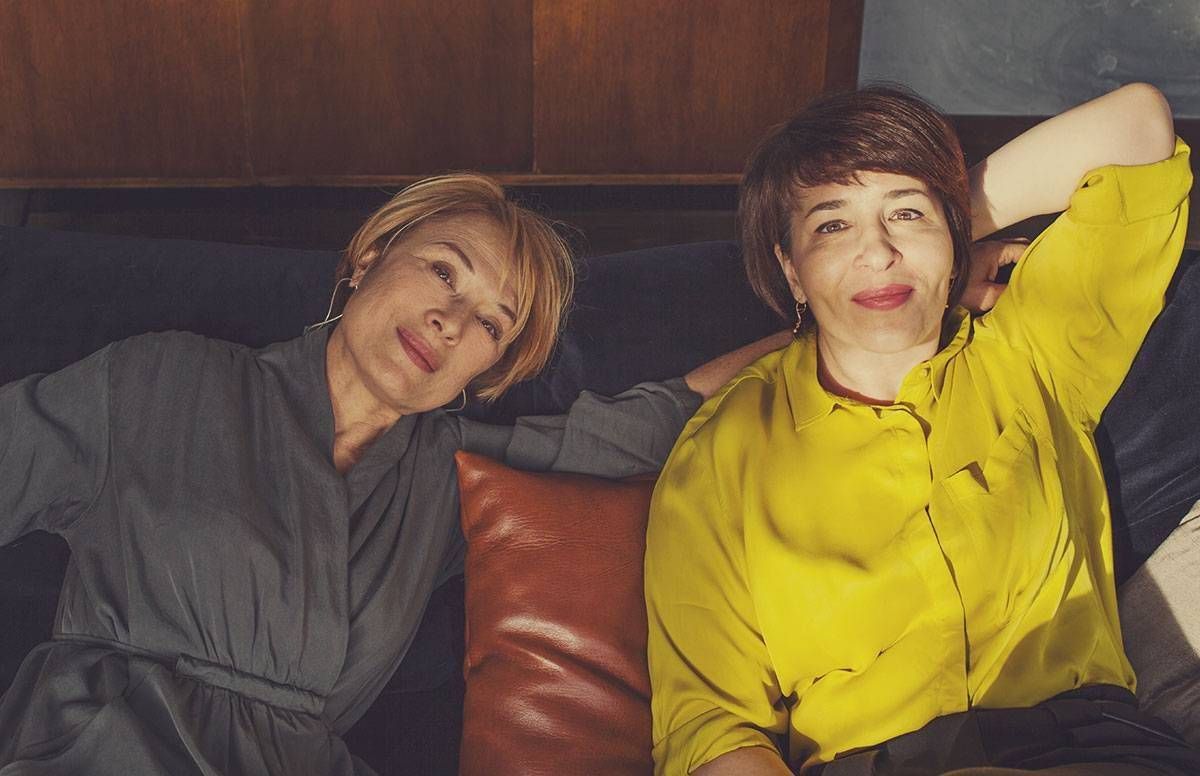Our Siblings, Our Selves
Our oldest relationships are sometimes the most complicated
A new study of sibling relationships in later life, linked to well-being, brought the Brown sisters to mind. They are the quartet of women whose annual photographs, over more than four decades in the same pose and in the same order, taken by the same photographer (the husband of one), resonate for those who grew up with siblings of their own, especially sisters.

The research correlated strong sibling bonds in later life with emotional satisfaction, while more troubled relationships were associated with loneliness, depression, hostility and anxiety.
One can only speculate about the relationships between, and among, the Browns, wonder what happened to them in the decades when they grew from girlhood to middle and old age. Their collective, unflinching gaze offers no clue; they give nothing to the camera.
As a social psychologist, and as one whose troubled bond with my own sister accounted for many of the negative symptoms cited in Stocker's research, I think about the many siblings I know, have interviewed or observed over the years. I know the stories they tell about each other, the feelings they express, and the words they use to describe their siblings' presence or absence in their lives, especially as the years go by.
Sisters as Best Friends
The relationship between Judy and Janet, two sisters now in their early 70s, provides them both not only support and companionship, but also the security of knowing they can count on each other to sustain them through the rest of their lives. "At least until one of us dies," says Judy, a publisher who left New York in her fifties for San Francisco, where she had friends and freelance opportunities.
Her sister, a museum curator in Los Angeles, visited often, and within a year they bought a house together, out of the city, but close enough to care for and manage the affairs of their elderly aunts as their mother had done before she died. Janet telecommuted between northern and southern California until she retired, and the sisters restarted their lives together, furnishing their home, seeing old friends and making new ones, finding paid and volunteer opportunities and loving it all.
A sense of humor, and the ability to laugh at themselves, is another indication that their relationship is built on more than blood alone.
But they are both long-range planners, and when they began to consider who would be there for the survivor when one of them died, they moved again, this time to Arizona, where they'd been born and raised and still had family: cousins, nieces and nephews, shirttail relatives and friends whose weddings, graduations, bar mitzvahs and anniversaries they'd attended together for years.
"You know, someone to look in on the doddering old lady in her declining years," says Judy, and Janet chortles. A sense of humor, and the ability to laugh at themselves, is another indication that their relationship is built on more than blood alone. They're each other's BFFs (Best Friends Forever) and probably would be even if they weren't related — the most enviable sisterhood of all, one not that uncommon in many families.
Friction Led to Friendship
In other families, the emotional, if not the geographic, distance between siblings varies from intimate to alienated. But even for those who usually have little or nothing to do with each other, crises and celebrations, rites and rituals often unite them at least temporarily despite their differences.
Once my mother and her sister established families of their own, my aunt was mostly a holiday presence in our lives; I saw her family when we visited my grandparents, who lived in the same city, a two-hour drive away.
The sisters' different lives and personalities occasioned an undercurrent of friction between them. My aunt disapproved of my mother, who either ignored her or rose to the bait, depending on how much she'd had to drink. Yet after both were both widowed, they became much friendlier; they even shared an apartment in Florida during the winter.
They weren't exactly the Golden Girls, although friends who'd known them both since they were all young together often rolled their eyes and called my outspoken mother "Maude" (Bea Arthur's character from her previous television show of the same name). By then, they'd become both company and comfort for each other, and remained that way until my mother passed away.
Regret For What Never Was
Long before then, I'd realized that my own sister, whose bipolar disease deeply affected me growing up and caused my parents grief and worry until they died, would be neither company nor comfort to me.
Sometimes, coming together in the wake of consequential events later in life leads to more enduring and satisfying friendships among siblings who've either forgiven or forgotten why they fell out in the first place. It didn't for my sister and me; too often, those events sent her into an acute episode of her disease. And when it subsided, I was emotionally wrung out.
She died a few weeks post-9/11 after a mercifully brief illness. In the months afterward, I attributed my depression to our collective national trauma, not to my own recent bereavement, which didn't have any of the consequences of a death in one's immediate family...no tears, no sadness, no sense of loss.
Finally, I went back to my old therapist, who knew my family history, and shared the only feelings I could name: guilt and relief. She spoke of how the tangled ties that bind us to each other may either free or strangle us. "It's difficult to mourn an ambivalently-held Other," she said, precisely articulating the mixed emotions about my sister I had for years struggled to understand and accept.
At long last, I could exhale the relief, replace the guilt with regret and sincerely wish it had been otherwise.

